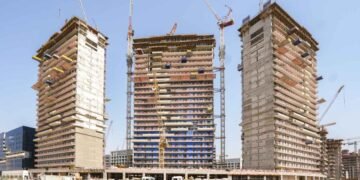Dubai’s real estate market has long attracted global investors with its high rental yields, zero property taxes, and rapid infrastructure development. Whether you’re buying to live or to invest, understanding property valuation in Dubai is crucial for making informed decisions, securing financing, and ensuring long-term returns.
In this guide, we delve deep into the property valuation process in Dubai, the methods used, legal frameworks, and the key factors that influence property prices — equipping you with everything you need to know.
Why Property Valuation Matters in Dubai
Property valuation is the process of determining the fair market value of a real estate asset. In Dubai, this isn’t just a technical necessity — it’s a strategic tool. Whether you’re a foreign investor applying for a mortgage or a landlord looking to set a competitive rent, a proper valuation provides clarity on:
- Market Price Accuracy
- Financing and Mortgage Eligibility
- Rental Price Setting
- Capital Gains Planning
- Legal Compliance with RERA (Real Estate Regulatory Agency)
Also read: Dubai’s Hidden Gems: Emerging Neighbourhoods Ideal for Indian Investors in 2025
Key Methods Used in Property Valuation
There are four main property valuation methods commonly used in Dubai:
1. Sales Comparison Approach (SCA)
This is the most widely used method. The property is compared with recent sales of similar properties in the same location. Factors like square footage, amenities, age, and view are considered.
2. Income Approach
Used mostly for commercial or rental properties, this method calculates valuation based on the income the property generates. Capitalization rates (cap rates) are applied to estimate long-term value.
3. Cost Approach
This evaluates how much it would cost to rebuild the property from scratch, minus depreciation. It’s used for unique or under-construction properties.
4. Residual Land Valuation
For developers and investors, this method calculates the land value based on the potential return from developing the site.
Who Performs Property Valuation in Dubai?
In Dubai, licensed RERA-approved property valuers are the only professionals authorized to perform official valuations. They include:
- Valuation firms registered with the Dubai Land Department (DLD)
- Bank-affiliated valuers (used when applying for mortgages)
- Independent RICS-certified valuers for premium properties or portfolios
It’s mandatory to use approved valuers for official transactions such as mortgage applications, inheritance cases, or legal disputes.
RERA’s Role in Property Valuation
The Real Estate Regulatory Agency (RERA), under the Dubai Land Department (DLD), plays a central role in regulating and standardizing valuations. RERA has created:
- The Official Property Valuation Service: This is an online tool where owners can request official valuations.
- Rental Index: Updated quarterly, this index helps landlords and tenants understand permissible rent adjustments.
Using the RERA system ensures transparency and protects both buyers and sellers.
How to Get a Property Valuation in Dubai
Here are the general steps for obtaining a property valuation:
- Submit a Valuation Request via the DLD app or through an approved valuer.
- Provide Required Documents: Title deed, passport copy (for expats), Emirates ID, and property floor plan.
- Site Visit and Inspection: A valuer will physically inspect the property.
- Receive Official Valuation Report within 3–5 working days.
Fees typically start from AED 2,000 for standard units and vary based on property type and complexity.
Factors That Influence Property Valuation
Several elements affect a property’s market value in Dubai:
- Location: Prime areas like Downtown, Palm Jumeirah, and Dubai Marina command higher valuations.
- View and Orientation: Sea views and corner units usually increase value.
- Amenities and Facilities: Proximity to metro, schools, parks, and malls boosts value.
- Developer Reputation: Properties by Emaar, Nakheel, and DAMAC generally have higher resale and rental potential.
- Market Conditions: Global and regional economic trends, oil prices, and visa reforms can affect demand and pricing.
Tips for Investors
- Compare Recent Transactions: Use platforms like Dubai REST or Bayut to compare recent sales.
- Engage RERA-Approved Valuers: For mortgage, insurance, or legal purposes.
- Don’t Overpay on Emotions: Stick to data-driven evaluations, especially for off-plan properties.
- Check Service Charges: High maintenance fees can impact long-term ROI.
Conclusion
As Dubai cements its status as a global investment destination, accurate property valuation is more important than ever. Whether you’re entering the market for capital appreciation or rental income, understanding how valuation works — and getting it done right — can make all the difference in protecting your investment.
Always rely on professional, RERA-approved valuation services, and stay updated with the Dubai Land Department’s tools and indices to make informed decisions. The more you know, the better you invest.
Discover more from Invest Dubai Today - Dubai Realty Insights
Subscribe to get the latest posts sent to your email.

















































